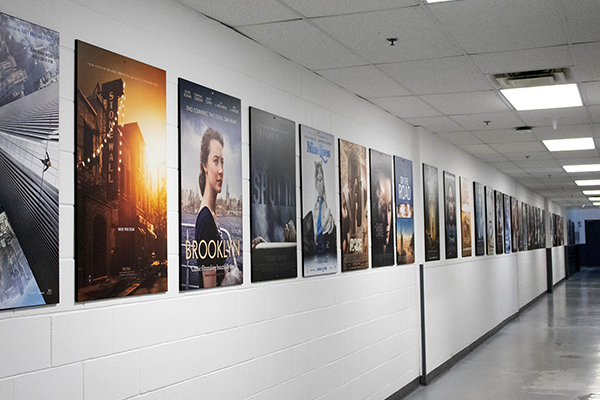BY Sarah Auclair & Esther Haguenauer
If you had asked Eve Lemieux, who’s been acting for nearly two decades, how the audition process was going last year, the answer might not have been good. Audition opportunities were scarce.
“There was a time where getting auditions was very rare, it was a privilege,” says Lemieux.
But this year, things have changed. “I had more auditions last month than I did in the last two years.” She says.
Yet the spikes in her auditions have been for TV shows, not movies. Actors are now paid by the hour for auditions, making things a little easier. While auditions may be going better for actors like Lemieux, the same can’t exactly be said about the film industry in Montreal.
Montreal has been a part of some of the most popular films we know today, whether it was filmed in Montreal, or had production work done here. The city is no stranger to hosting some well-known actors, too.
The visual effects (VFX) industry is booming now more than ever. Just in Montreal, there are now more than 80 VFX studios. These studios have been utilized by local creators, like Denis Villeneuve, who recently directed Arrival and Blade Runner 2049, as well as international creators like David Benioff and D.B. Weiss (Game of Thrones).
The Visual Effects Industry has been booming in Montreal in the last few years. Video by Esther Haguenauer.
The film industry includes a wide range of sub-industries, so while some aspects of the industry may be booming in the city, others might not be as good as they used to be.
Pierre Roy is a board member and administrator of Cinemania francophone film festival. Three years ago, he conducted a study into the industry and believes that improvements need to be made.
“There were many communication problems between the departments of the city of Montreal,” says Roy.
There were also issues concerning the human relations aspect of the industry.
“There weren’t enough people to answer to the volume of the demand,” says Roy.
Ultimately, his study didn’t find one main issue, but a lot of little ones hindering the industry’s production.
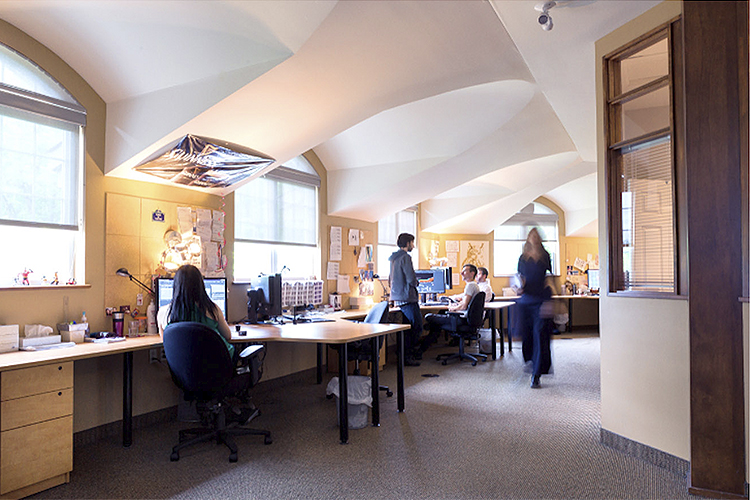
The studios at Hybride in Montreal have worked on many Hollywood blockbusters, like Aladdin, Star Wars: The Rise Of Skywalker and Kong: Skull Island. Photo courtesy of Hybride Ubisoft.
“If I had to summarize the [main issue we found], it was a real lack of communication, and a lack of real will to help the producers,” says Roy.
Mose Persico, a Hollywood film beat reporter for CTV News for 34 years now, also believes that the film industry in Montreal has seen better days. According to Persico, the industry is going backwards and was doing much better 10 years ago.
“The competition is fierce and Quebec didn’t adjust to the market due to a lack of professionals involved in the representation,” says Persico.
When asked what the government could do to improve the situation, Persico wasn’t convinced that the government can be of any help.
“You can’t have representatives from the government on the ground who don’t understand the business,” he says. “Hire business development specialists who understand the business and know how to close a deal.”
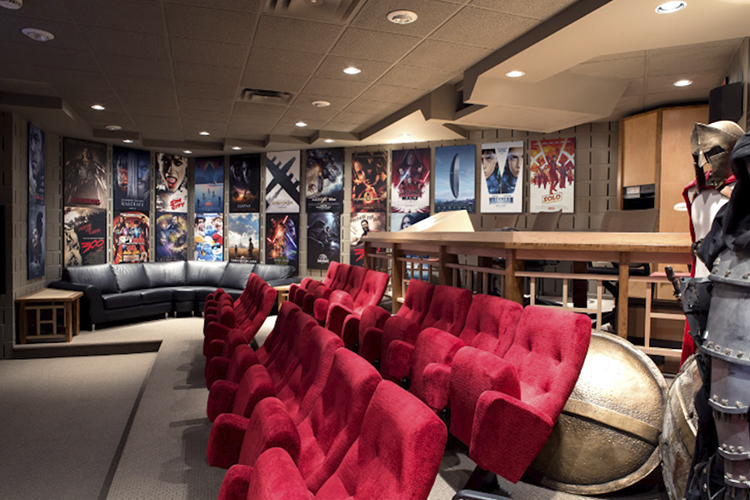
Hybride is the cinema-side of Ubisoft, located in Montreal. They have theaters within the studios to see the final work. Photo courtesy of Hybride Ubisoft.
Premier François Legault has indeed been trying. Legault made a trip down to California in December 2019 in an attempt to bring more foreign productions to Quebec. While there, he met with executives from Sony Pictures Studios, Netflix, Walt Disney, and Universal Studios.
Legault’s plan was to get more money invested into Quebec’s film industry and create jobs.
According to the Quebec Film and Television Council’s (QFTC) 2019 Annual Report, 378 million dollars have been invested in the province. The report also states that 5,858 jobs were created or maintained in the industry.
Learn more about Montreal’s film industry. Media by Esther Haguenauer.
Marie-France Godbout, National Director of French feature-length films at Telefilm Canada, has been working in the industry here for 20 years. Unlike Roy and Persico, she believes that things are going pretty well these days. In fact, she wonders if too many films are currently being produced in Montreal.
“These days, the majority of movie pitches get picked up, unlike 10 years ago when only a few would get picked up,” says Godbout.
According to Godbout, the only issues with the film industry in Montreal are the budgets.
“Are we making too many movies? The answer is probably yes,” she says. “The number of contracts are increasing, but the funds aren’t.”
While Godbout believes that there is no cause for concern, there is always a need for constant effort.
“Production companies need to pitch diverse projects, they have to change it up,” says Godbout.
Michel Trudel, co-founder of Mels Studios, also believes that the industry is thriving. Mels has 20 stages that are used for film and television productions. These studios have been used for both local and international productions.
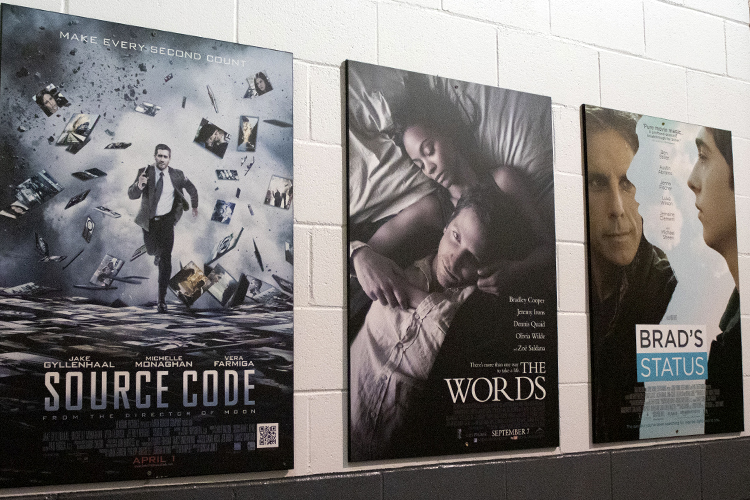
MELS Studios are the biggest studios in Montreal. Productions from all over the world come to their stage lots to build sets of all kinds of landscapes. They can also have their visual effects, sounds and post-production done in the studios. Photo by Esther Haguenauer.
“I think we’re going to have a good year,” says Trudel. “Everyone is working and all of the stages are booked.”
That being said, he did mention that last year wasn’t the best for Montreal.
“There were a lot of big transactions [in the film industry] in Los Angeles last year, and I think they were waiting to see what would happen,” says Trudel.
He also pointed out why foreign directors are attracted to Montreal in the first place.
“We have beautiful architecture. We’re able to represent different places like New York, Boston, France,” he says.
Montreal is also known for providing generous tax credits, which attract foreign directors and production companies. According to the QFTC, “28% of eligible labor costs to a maximum of 50% of production costs, which means an effective tax credit rate of 17,5% of total eligible production costs.”
For Trudel, the issue doesn’t lie in the amount of production, but in job security.
“We get a lot of freelancers, and usually the work only lasts six months,” says Trudel, “So you have people out of a job for half the year, and they end up leaving the industry for something more permanent.”
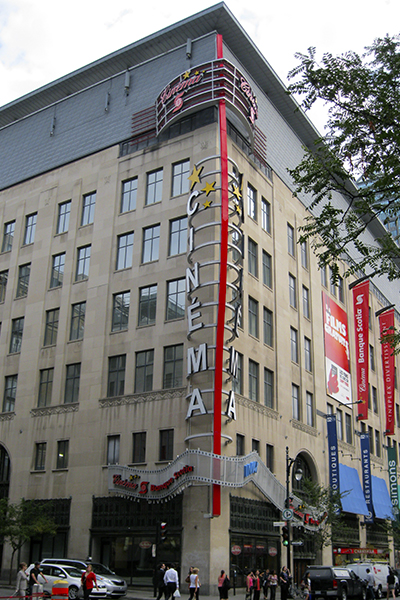
The Scotiabank theatre in the downtown Montreal area. Photo courtesy of Google Images.
